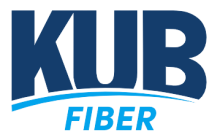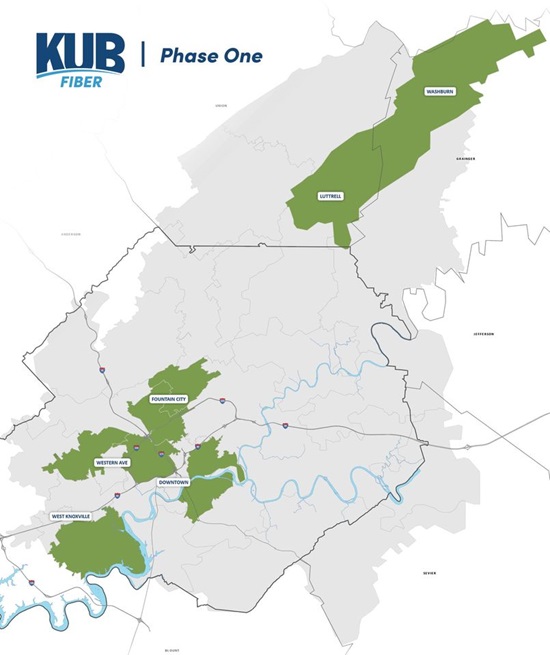
Fast, affordable Internet access for all.

Knoxville, Tennessee's Knoxville Utility Board (KUB) says it has completed the first phase of its ambitious broadband deployment, bringing affordable fiber access to more than 50,000 premises in this city of 192,000 – many for the very first time.
When we last wrote about KUB back in 2021, the city's utility had just received approval to build what will eventually be the biggest municipal broadband network in the U.S.
All told, the $702 million project, known as KUB Fiber, aims to deliver affordable fiber to 210,000 households across KUB’s 688-square-mile service area, taking between seven and ten years to complete.
KUB says that the first phase of fiber deployment involved the installation of more than 1,100 miles of fiber infrastructure. Upgraded users have the option of three tiers of service: symmetrical gigabit per second (Gbps) service for $65 a month; symmetrical 2.5 Gbps service for $150 a month; and symmetrical 10 Gbps service for $300 a month.
KUB’s service tiers do not come with usage caps or long-term contracts. Unlike many municipal operations, KUB is also offering locals the option of bundling television service.
KUB was driven to expand access after more than a decade of local frustration at the slow speeds, high prices, and spotty coverage caused by a notable lack of competition between regional telecom monopolies, AT&T and Comcast (Xfinity). Both companies have attempted to lock down customers via long-term contracts ahead of the network’s completion.
As one local resident said:
“Comcast thanked me for being a customer for 23 years, but it's not because I've had the option to go anywhere else. They have had 23 years to fix these problems and they haven't."
KUB’s electric division provided a $35 million loan to fund the upfront capital and operational costs over the first two years. From there, KUB will help fund the project via three consecutive annual electric rate increases of 3 percent each, starting last year.

KUB officials say that the electrical bill increases, once complete, should only increase consumer electrical bills by around $10 total annually. Those higher costs are expected to be offset by broadband savings, with consumers estimated to pay between $11 to $46 less for broadband access every month.
Local Knoxville NBC affiliate 10News reports that the first wave of deployment covers portions of the Fountain City, South Knoxville, West Knoxville, Luttress, Washburn and East Knoxville neighborhoods. KUB has yet to clarify the precise boundaries of the next deployment phases, but maintains a website tracking fiber deployment progress and availability.
Much like Chattanooga’s EPB Fiber (which helped net the city a $2.69 billion ROI over 10 years), city leaders are hopeful that the historic network will prove transformative in more ways than one.
One independent study conducted in 2021 projected that with a 35% take rate, Knoxville’s investment into affordable fiber could result in a $18.5 to $85.7 million increase in aggregate Tennessee incomes per year via increased employment opportunities, improved local municipal efficiencies, greater medical care, and assorted other benefits.
Should Knoxville succeed, it should prove inspirational to other cities curious about building their own community-owned and operated fiber networks at urban scale. Between Knoxville and Chattanooga, Tennessee continues to position itself at the forefront of community broadband, despite a restrictive state law that attempts to stifle competition at monopoly provider behest.
Listen to Community Broadband Networks Initiative Director Christopher Mitchell discuss the project with Jamie Davis, CTO of KUB Fiber from our weekly Community Broadband Bits podcast below:
KUB Fiber Phase One Map courtesy of Knoxville Utilities Board Facebook page
